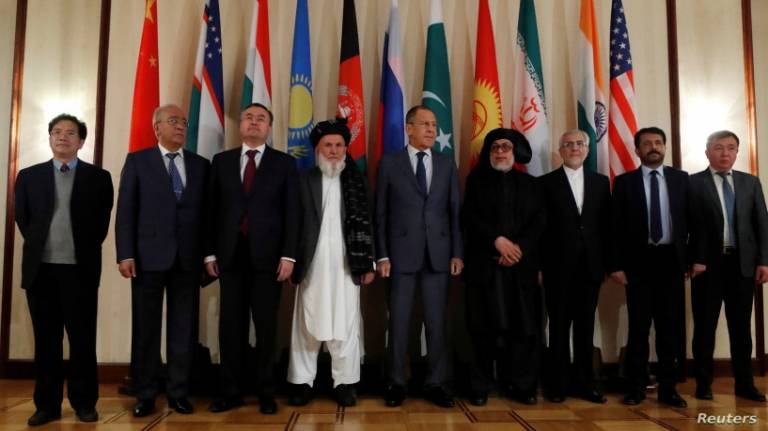Beijing has been pressing Afghan warring factions to work for a peaceful settlement to end the war—fearing that continuation of hostilities could undermine stability in the western Xinjiang region.
As the intra-Afghan peace negotiation is going to restart in the Chines capital Beijing, many Afghans express concerns about the consequence of talks with the Taliban. The concern is raised while earlier on October 29, the Afghan National Security Adviser Hamdullah Mohib reiterated that a month-long ceasefire is precondition to peace talks with the Taliban insurgents. Though the Taliban peace negotiators have shown some sort of flexibility in peace meetings, they have refused to open direct talks with the Afghan government, calling it a ‘puppet government’.
The US-Taliban peace talks collapsed after nearly a year-long negotiation. The two sides were about to sign a peace agreement when US President Donald Trump abruptly called off the talks following a deadly Taliban-claimed attack that killed 11 Afghan nationals and one American soldier in the Afghan capital in September 2019.
For the Trump administration, withdrawal of US troops from the Afghan conflict is a top priority. Mr. Trump, who faces election at home, is seeking to find a way to end American’s military mission in Afghanistan. Three weeks after the collapse of US-Taliban peace negotiation, Washington dispatched US Special Representative for Afghanistan Reconciliation Zalmay Khalilzad to Islamabad to discuss resumption of talks with the Taliban representatives.
Sediq Sediqqi, the spokesperson for the Afghan president, commenting on resumption of peace talks with the Taliban, said the Afghan government welcomes any dialogue that opens the door for mutual understandings on peace.
Regional countries press Afghan warring factions to reach a settlement
Following the collapse of US-Taliban peace talks, the Taliban representatives restarted visiting Moscow, Beijing, and Islamabad to discuss Afghan peace. Russian, Chines and Pakistani diplomats hugged the Taliban peace negotiators in their capitals, saying political settlement is the only way to end the nearly 18-year-long Afghan conflict.
On Friday, October 25, Moscow-four party meeting ended with a statement on intra-Afghan talks. Russia, China and Pakistan called on the US to resume talks with the Taliban insurgents. “Russia, China and Pakistan expressed their support for the earliest resumption of negotiation process and reaching an agreement between the United States of America and the Taliban movement, which will pave the way for launching intra-Afghan talks,” the statement noted.
China invites Taliban and Afghan politicians and officials for a tow-day talks
The People’s Republic of China, which shares a 76-kilometre border with Afghanistan, is one the main regional players in Afghan peace process. For China, the extension of Afghan conflict means more jeopardy in the region—something Beijing sees a potential threat to China’s national security.
Wahid Mojdah, a former diplomat in the Taliban regime, says China tries to play a decisive role in regional and international arenas aiming to secure its security, political and economic interests. “The Chinese are concerned about the over lip of extremist Islamic State (IS) group into China’s Xinjiang region, and a peaceful Afghanistan will significantly reduce their concerns,” he noted.
“The Chinese are concerned about the over lip of extremist Islamic State (IS) group into China’s Xinjiang region, and a peaceful Afghanistan will significantly reduce their concerns,”
Jafar Mahdavi, an ex-Afghan MP, who leads a political party, believes China, as an emerging economic and military power, tries to counter US hegemony in the region. Also a rival to India, the Chinese government seeks to boost up its influence in Afghanistan and counter India’s clout in the country.
Also a rival to India, the Chinese government seeks to boost up its influence in Afghanistan and counter India’s clout in the country.
The Beijing conference was scheduled to take place on October 29-30 but it was postponed due to uncertain reasons.
The Chines government has maintained close relations with the Taliban insurgents. Beijing has been pressing Afghan warring factions to work for a peaceful settlement to end the war—fearing that continuation of hostilities could undermine stability in the western Xinjiang region.




